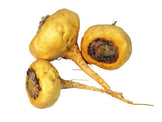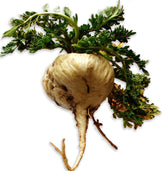Description
Description
As a Master Herbalist I believe there are two general categories of herbalists and within these categories, there are many variations:
- First, there are those herbalists who like working in a clinical setting.
- Next, you have the herbalists who like being outdoors experiencing the plants in nature specifically learning about the plants local to where they live.
I think it is safe to say I am not your average herbalist.
While I do admit I love messing around with herbs, tinctures, and formulations, and at times enjoy a clinical setting, what I love most is being “in the trenches”.
I love traveling to other countries and experience different cultures (This article is a result of my trip to Kihiki in Uganda, Africa in June 2018). I adore the habits, foods, lifestyles and local medicine’s from the many cultures around the world.
You can never replace the experience of using and seeing the medicines in their natural habitat in action. There is something very special about preparing and using a medicinal plant in the rainforest or jungle versus taking something at home. The true healing experience is about being and connecting to the place where that plant grows. I have a great amount of respect for the sacred information that is passed down through many generations from locals and tribes.
These people are the true “in the trenches” medicine men. With all of that said, let’s not forget the unsung heroes of medicine men. These heroes are all about instinctual medicine. Yes, I am talking about the wild animals in nature. I don’t know about other herbalists but I have never had a wild gorilla walk into my office for a consult.
The Nature of Nature
 I recently got back from an excursion to Africa (specifically Uganda). I love nature and nothing makes me happier than being in nature to observe how it really works in its most natural sense. One of the places I have found this to be especially true is in Africa. While I have also been to Kenya, my trip to Uganda had a very profound effect on me.
I recently got back from an excursion to Africa (specifically Uganda). I love nature and nothing makes me happier than being in nature to observe how it really works in its most natural sense. One of the places I have found this to be especially true is in Africa. While I have also been to Kenya, my trip to Uganda had a very profound effect on me.
Everything about the trip, whether it was Murchison Falls (The most powerful waterfall in the world), the gorillas (A 97% DNA match to humans), or the hippos, once again proved that humans are not the most superior creatures on earth.
I could sit in the wilds of nature for days and simply get joy from observing these amazing creatures and sites. If you take your time and get into the moment, you can see the profound lessons nature teaches us. We may be the most advanced creatures but that does not necessarily make us the smartest.
Lessons from the African Mountain Gorilla
The gorilla is a truly an amazing creature.
African mountain gorillas are protected because they were in danger of becoming extinct due to poachers. Around halfway through my trip, I spent several days gorilla-trekking.
Before my group went out for the day to find and observe the gorillas, we were told that if anyone in the group is sick with a cold, flu or stomach bug they would have to stay behind. While I thought I knew the reasoning for this, (common sense tells us you don’t want someone getting sick in the middle of the jungle) I was only half right.
 The main reason, gorillas are around a 97% DNA match to human beings and we can make them sick just as easily as they can make us sick. This blew me away as so many of us have a preconceived idea that our lives are the only ones in danger when we are in the wild. This DNA match makes gorillas the perfect animals to observe and learn lessons from.
The main reason, gorillas are around a 97% DNA match to human beings and we can make them sick just as easily as they can make us sick. This blew me away as so many of us have a preconceived idea that our lives are the only ones in danger when we are in the wild. This DNA match makes gorillas the perfect animals to observe and learn lessons from.
Recently I wrote several articles discussing the idea that if you want to achieve optimal health, you must first “master the basics”. Well, nature has once again shown us the way. I noticed three specific habits which the gorillas all partake. Here they are:
1) Instinct-based eating habits
First, gorillas are vegans and eat a massive amount of leaves and vegetation on a daily basis. A full grown male gorilla weighs around 440 pounds of solid muscle and all from eating plants local to where they live. I want to be clear that I am NOT saying everyone should become a vegan. My point was to show, that gorillas eat based on instinct and what they know is good for them. Next, gorillas only eat when they are hungry. There is no set schedule for the mighty gorilla. I was very observant in the time we were in the jungle with the gorillas and not a single gorilla looked at his or her watch and stood up to say “Okay, it is noon, let's eat some lunch!”.
Gorillas don’t overeat and seem to base their volume on what they are eating. I noticed that some gorillas around the same size were eating different types of leaves and some were eating way more than others. My trekking guide explained to me, based on the nourishing value of the plants being eaten, will declare how much of it they eat. Finally, like most wild animals, gorillas are their own doctors. When a gorilla does not feel well, they just know what plants to eat in order to get themselves well.
2) Rest, Digest and take note of your surroundings
When a gorilla is done eating it simply takes the time to rest and digest the food it just enjoyed eating. Gorillas understand that on a full stomach they won’t get very far (especially considering the volume they need to eat) so they are in no rush to move and get back to the crazy life they live.
These amazing primates are also smart enough to know they must always be in the moment and aware of their surroundings. While it true that they do it for survival purposes, resting and taking the time to enjoy your surroundings it is a wonderful lesson that many other cultures practice on a daily basis. It is strongly believed that this one simple practice is an integral part of being truly healthy.
3) Family and Community
At the beginning of the
There is always a comfort in knowing that the ones you surround yourself with care about you as much as you care about them.
Take home message
When my life begins to get too complex or out of control, I am a big fan of pressing the restart button by simply going back to the basics.
While wholesome nourishing foods are the centerpiece for achieving optimal health, using nature as a learning tool reminds us of re-establishing smart, simple and basic habits is vitally important.
These basics habits combined with wholesome nourishing eating really is a match made in heaven.
About Michael Stuchiner
 Michael Stuchiner is an experienced Master Herbalist, the Head of Education for Z Natural Foods, a teacher, and an accomplished author. With an 18-year specialization in medicinal herbs, Mike also has a vast knowledge in tonic and adaptogenic herbalism. Mike has enjoyed a 25-year career as an elite-level competitive powerlifter where he learned to heal his ‘mind and body’ as an avid user of herbal remedies.
Michael Stuchiner is an experienced Master Herbalist, the Head of Education for Z Natural Foods, a teacher, and an accomplished author. With an 18-year specialization in medicinal herbs, Mike also has a vast knowledge in tonic and adaptogenic herbalism. Mike has enjoyed a 25-year career as an elite-level competitive powerlifter where he learned to heal his ‘mind and body’ as an avid user of herbal remedies.
As an “in-the-trenches” herbalist, Mike has done more than 85 speaking engagements, consulted with clients ranging from young to elderly, worked with athletes in virtually all sports and with clients who have “dis-ease” states of a wide variety. Mike also mentors student Master Herbalists and will continue to teach the next generation to grow a deeper wisdom of the human body through appropriate herbal remedies.
For Bulk inquiries and custom formulations click here: https://www.znaturalfoods.com/pages/bulk

























































































